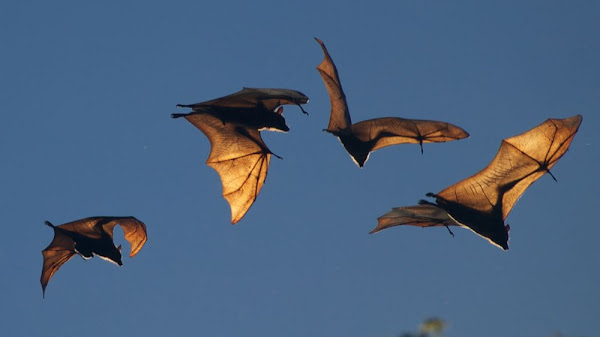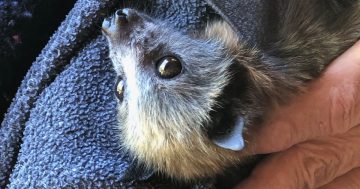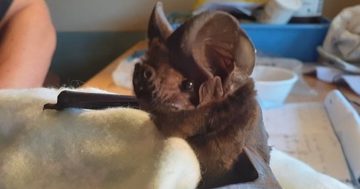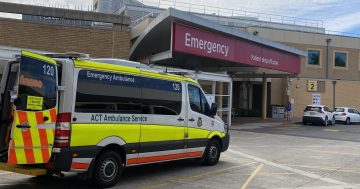
Is there anything better than a Bat Warning?
ACT Chief Health Officer Dr Paul Kelly said today that in the past week the ACT Health Directorate has received a number of requests for anti-rabies treatment for people who have been bitten or scratched by bats. These injuries have occurred when people are picking up bats that appear injured.
Only vaccinated people who have been trained in the care of bats should handle them. Anyone who comes across an injured bat should contact the RSPCA on 6287 8113, or call the afterhours wildlife rescue officer on 0413 495 031. If you see an injured bat, do not touch it or pick it up and avoid direct contact with bat saliva.
“Australian Bat Lyssavirus (ABL) is spread by the saliva of infected animals through bites, scratches or licks on broken skin. Bats with ABL may appear sick or be unnaturally aggressive but this is not always the case,” Dr Kelly said
“Touching bats or coming into contact with their urine, faeces or blood will not transmit ABL but may expose you to other viruses or bacteria that cause human disease.
“If you are bitten, scratched or licked by a bat it is important to wash the wound or area thoroughly, for about five minutes, with soap and water. If available, an antiseptic or alcohol solution should be applied after washing.
“If saliva from a bat went into your eyes, nose or mouth flush well with water. Seek medical attention as soon as possible.
“All Australian bats have the potential to carry the Australian Bat Lyssavirus, which is in the same virus family as rabies and, can be fatal in humans, therefore it is recommended that people avoid contact with all bats,” Dr Kelly said.















